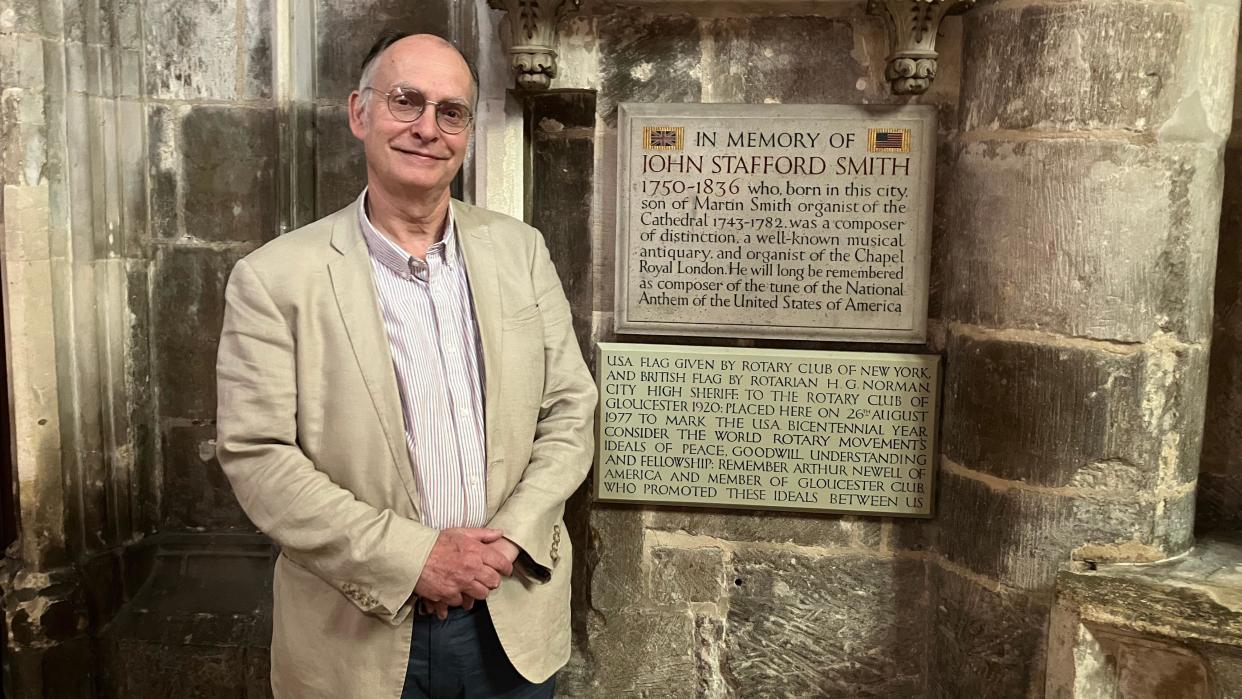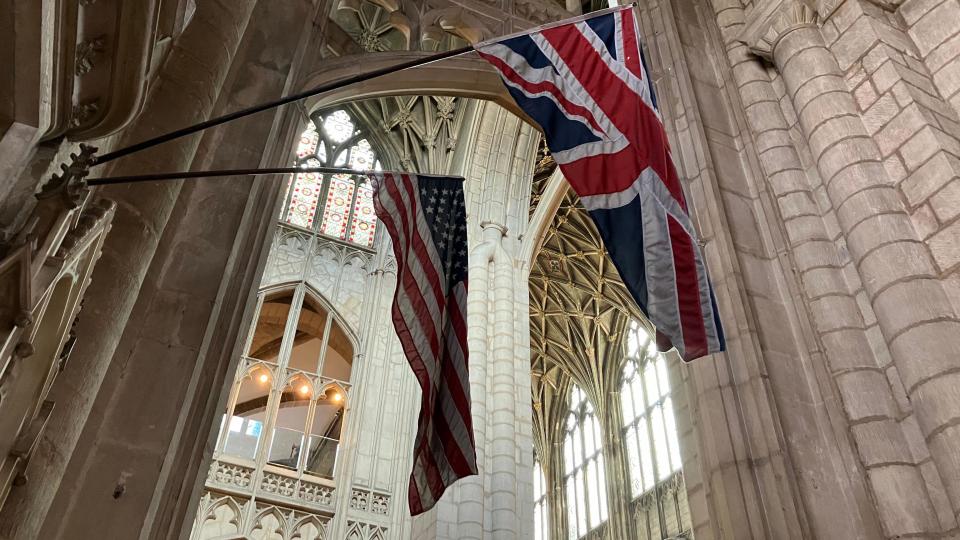US national anthem's surprising connection to England

On the other side of the Atlantic, many people in the United States will be belting out the words to the national anthem for Independence Day.
But it may come as a surprise to some that the tune of The Star-Spangled Banner was written this side of the pond and has deep connections to Gloucester.
John Stafford Smith originally wrote the tune as a drinking song, with words written during a war between Britain and the US later paired with it.
Gloucester Cathedral's assistant director of music said it felt "extra special" to play the tune at the cathedral.
Baptised in Gloucester on 30 March 1750, John Stafford Smith was the son of Gloucester Cathedral's director of music at the time, Martin Smith.
A choir boy at the cathedral in his younger years, Stafford Smith grew up to become a professional musician, joining the Anacreontic Society in London, a gentleman's club for musicians.

Adrian Partington, director of music at Gloucester Cathedral, said the evenings spent at the gentleman's club would be filled with "musical performances, talks, and a drink or two".
"Stafford Smith wrote a little anthem they could all sing when they'd had a drink or two," Mr Partington said.
The tune written by Stafford Smith in the 1780s, The Anacreontic Song, "was instantly a hit".
"Of course, at that time, lots of people were emigrating from the UK over to the States and it was evidently a popular tune in the States by the beginning of the 19th Century," Mr Partington said.

Although Stafford Smith composed The Anacreontic Song, the words used in the official US national anthem were taken from a poem written by Francis Scott Key - a lawyer and slave owner - during an expedition to release a doctor from British troops in the War of 1812.
"During this expedition, he witnessed the British bombarding an American fort called Fort McHenry near Baltimore," Mr Partington said.
"The British troops were doing their worst, but all night long, the US flag stayed flying in the night, and he was so moved by this that he wrote a poem."
'Ironic'
The first verse of the poem, Defence of Fort M'Henry, later became known as the lyrics of The Star-Spangled Banner, which officially became the national anthem of the United States in 1931.
"Somebody noticed that those wonderful words by Francis Scott Key fitted this very popular tune by John Stafford Smith and the two were married together," Mr Partington said.
He added it was "ironic" an American poem, written during a war against the British, was married with a British tune.
"I call it ironic in a way, but it just goes to show that, whatever political problems there are, music is universal," Mr Partington added.

Assistant director of music at Gloucester Cathedral, Jonathan Hope, now plays in front of the organ Stafford Smith once "knew very, very well".
Only the case is the same because the instrument inside has "changed four or five times" since.
Mr Hope said: "I feel very honoured he was associated with this cathedral, it's actually extra special playing the American national anthem here.
"We have a wonderful echo here, and playing this anthem very loudly on the organ is extremely satisfying."
Follow BBC Gloucestershire on Facebook, X, and Instagram. Send your story ideas to us on email or via WhatsApp on 0800 313 4630.


